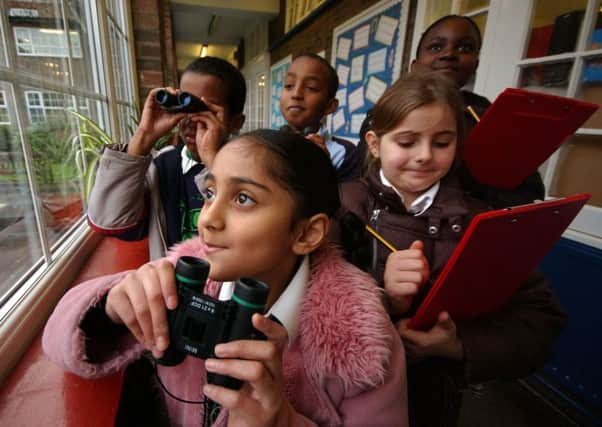Eagle-eyed school children in Lancashire to look out for the nation's favourite birds


The RSPB Big Schools Birdwatch – which takes place during the first half of the spring term (January 2- February 23) – is a chance for children to put down their books and get outside to experience and learn about the nature that lives in their local community.
The Birdwatch involves children spending an hour watching and counting the birds that visit their outdoor space, before sending the results to the RSPB.
Advertisement
Hide AdAdvertisement
Hide AdA recent survey of 200 teachers and 1200 school children from around the UK revealed that 96% teachers believed it was important for children to experience nature at school, while 77% of pupils agreed.
With close to a million school children taking part since its launch in 2002, the RSPB Big Schools Birdwatch is the perfect opportunity for schools to get outside, learn and make their first discoveries in nature.
Last year, more than 800 children and teachers in Lancashire took part. Blackbird was the most common playground visitor in the county and 90% of schools spotted one during their watch.
Woodpigeons, blue tits and robins all featured prominently in the results, and with over 70 different species recorded, there is sure to be a few surprises in schools around the county.
Advertisement
Hide AdAdvertisement
Hide AdEmma Reed, RSPB Education, Families and Youth manager in Northern England said: “Taking part in Big Schools Birdwatch uses just one lesson or lunchtime so it’s really fun and simple to set up, and it works for all ages. We hope that taking part will inspire school children in Lancashire about the wildlife they share their space with.
“Sadly, children today are spending less time outside in nature, which means they are missing out on the positive impact it has on their physical health, emotional wellbeing and their education. The Birdwatch is the perfect chance for them to experience nature first hand, make exciting discoveries, and the results help provide our scientists with valuable information, so the children are helping to make a real difference for wildlife.”
For the first time the RSPB has partnered with Cbeebies favourites Twirlywoos to provide exciting new activities and resources specifically tailored to Early Years, to help get their mini Birdwatches off to a flying start.
The Big Schools Birdwatch is a free activity and only takes an hour to complete. Teachers can pick any day during the first half of the spring term to take part, with the flexibility to run it as a one off or as the centre piece of a cross-curricular study, project work or a way for the children to improve their outdoor space.
To take part in the Big Schools Birdwatch and help the next generation of children start their own wildlife adventure, visit rspb.org.uk/schoolswatch